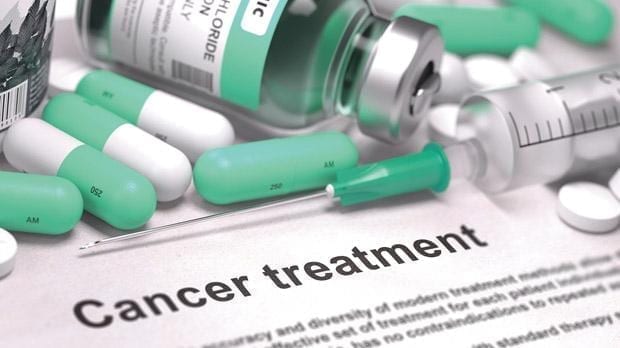Will Decreasing Cancer Med Dosages Make A Difference?
A group of prominent cancer doctors may shake up the pharmaceutical industry in a big way. They are using clinical trials to demonstrate their belief that many oncology medications could be taken at lower doses or for shorter periods without making and difference with regard to their effectiveness. This means that cancer patients could see the same results ingesting less medication. And, it also means that pharmaceutical companies will not be able to push drugs at the same levels they currently are.

The doctors point to their pilot study involving a widely prescribed drug for advanced prostate cancer, Zytiga. Cutting the standard dose of Zytiga by three-quarters, the doctors found, was as effective as taking the full amount, so long as patients followed bottle instructions and took the medication with a light breakfast, rather than on an empty stomach. By reducing the amount of prescription drugs taken, costs to the patients are reduced, as are unwanted side effects. Reducing the dosage of the $9,400-a-month medication would greatly reduce costs even for well-insured patients.
The doctors also wished to study whether the consumption period of some of the prescriptions could be shortened and if more inexpensive drugs not specifically designated for cancer care could be used in lieu of the pricier options. “This is the most practical and realistic way we have available right now to reduce the cost of cancer therapy and to increase value,” said Allen Lichter, a former president of the American Society of Clinical Oncology (ASCO). “It doesn’t require Congress to do anything or regulators to approve imports. It involves careful clinical study to show the oncology community some of these drugs can be used better. This is a win-win situation if we can show it works — fewer side effects and much better access for our patients.”

The idea was pitched to dozens of colleagues at ASCO’s annual conference in Chicago. Now the doctors just need to raise money to support their cause, which is estimated to be around $3 million to $5 million, and they’ll need to establish a network of medical centers willing to run the trials. In the initial study with Zytiga the doctors randomly enrolled 72 prostate-cancer patients, with half taking the recommended standard dose of 1,000 milligrams on an empty stomach and the other half taking 250 milligrams with a low-fat breakfast. Despite the notable difference in each dose, there was no difference in the drug’s activity. The effectiveness was measured by prostate-specific-antigen levels in each group. The length of time before the disease worsened was the same for both groups as well — just over a year.
Drug manufacturers have already fired back. “Use of food as a way to increase bio-availability in patients with cancer could present problems and risks,” the drug’s manufacturer, Janssen, stated. “Given the variation in the content and composition of meals, the recommendation is to take Zytiga exactly as described in the prescribing information.” However, the pharmaceutical companies, understandably, have a vested interest in pushing the products they produce, and some doctors also dislike the idea of changing the way drugs are administered for cost reasons. Whether or not the use of food will help or hinder treatment is yet to be definitively determined.
Sources:
Cancer drug prices are so high that doctors will test cutting doses


Join the conversation!